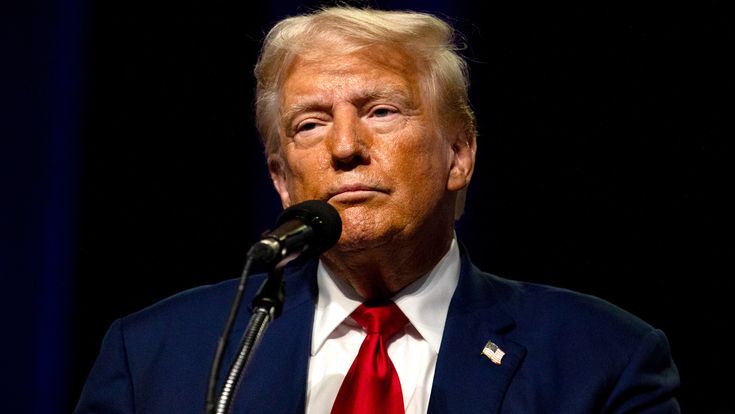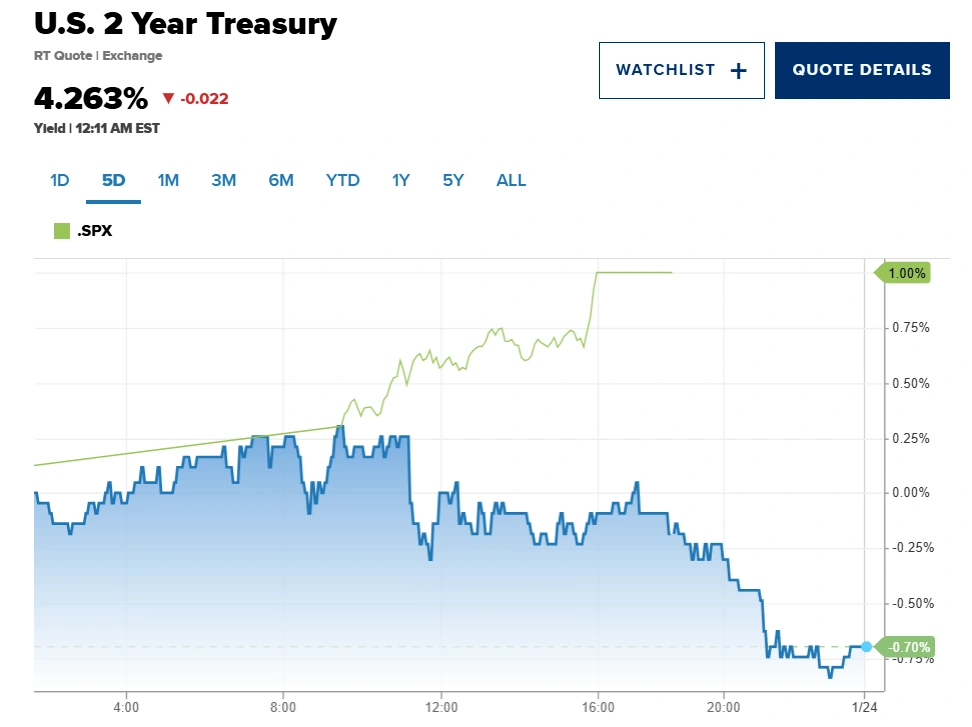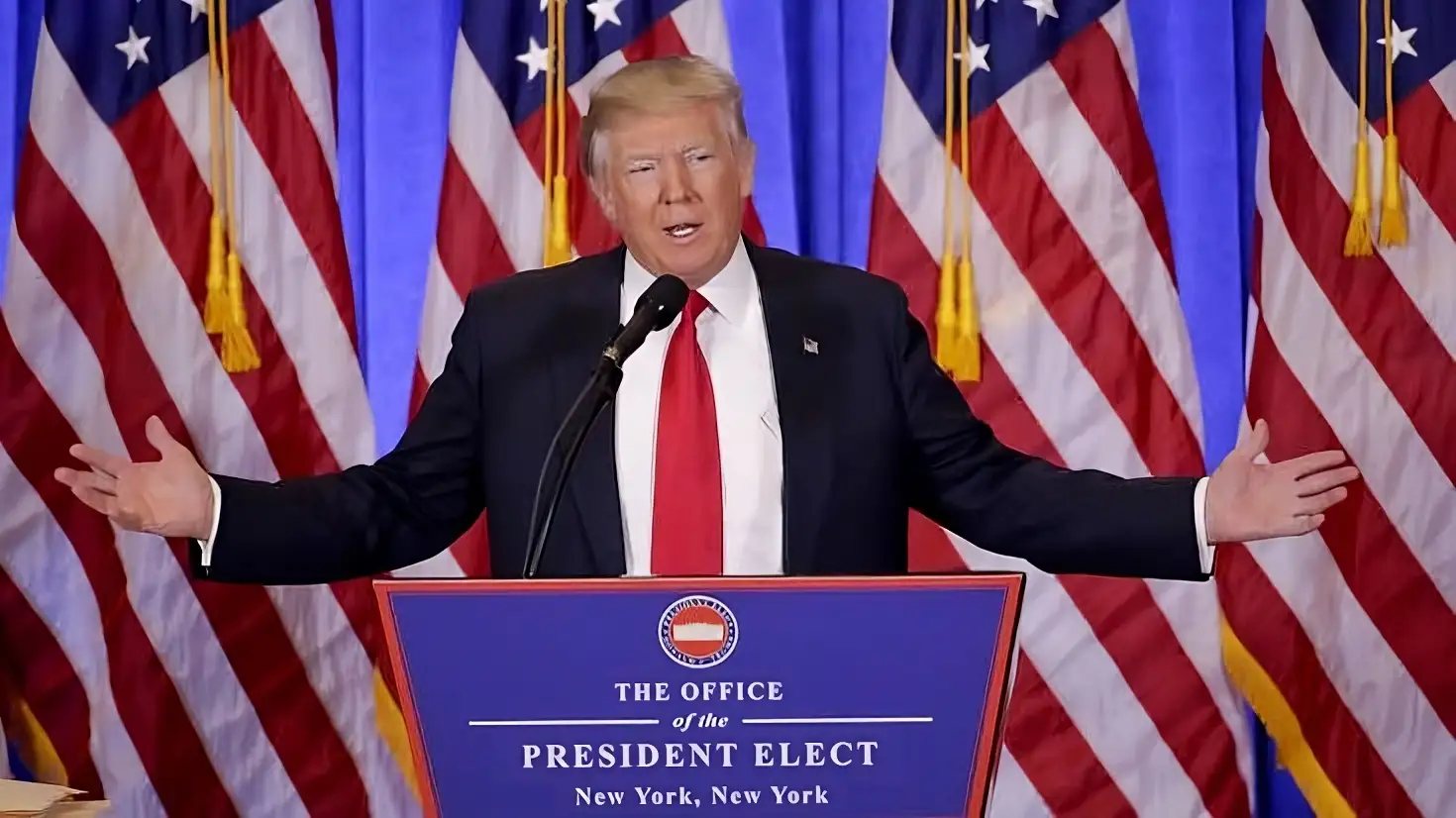President Donald Trump’s recent statement, “I’ll demand that interest rates drop immediately,” has ignited discussions across economic and political landscapes.
Speaking at the World Economic Forum in Davos, Switzerland, Trump’s bold declaration was a rallying call for change in monetary policy, not just in the U.S. but globally.
But what does this mean for everyday citizens, businesses, and the economy at large? Let’s break it down.
A Troubled History with the Federal Reserve
During his presidency, Trump had a contentious relationship with the Federal Reserve, often publicly criticizing its decisions. His remarks about Fed Chair Jerome Powell, whom he appointed, were infamous.
At one point, Trump labeled Powell a “golfer who can’t putt” and mocked the central bank’s officials as “boneheads.”
This history of criticism adds weight to Trump’s latest demand. While the Federal Reserve operates independently to ensure economic stability, Trump’s remarks raise questions about political influence on monetary policy.

Why Lower Interest Rates Matter
Lower interest rates typically mean cheaper borrowing for individuals and businesses. This can stimulate economic growth by encouraging investments in homes, businesses, and consumer goods.
For example, a family looking to buy their first home might benefit from reduced mortgage rates. Similarly, businesses can take out loans to expand operations, hire more workers, and drive innovation.
However, there’s a catch—lower interest rates can also lead to inflation if demand outpaces supply.
The Inflation Dilemma
Trump’s criticism of inflation under former President Joe Biden sets the stage for his comments.
He blamed “wasteful deficit spending” for what he described as the “worst inflation crisis in modern history.” The result, according to Trump, was skyrocketing prices for food and other essentials.
Interestingly, inflation had already started moderating by late 2024, following aggressive interest rate hikes by the Federal Reserve.
These hikes were intended to curb inflation but came at the cost of slower economic growth.

Fed Independence vs. Political Influence
The Federal Reserve prides itself on its independence. This independence ensures that monetary policy decisions are made based on data and economic indicators rather than political agendas.
Yet, Trump’s insistence on influencing interest rates raises concerns. While he doesn’t have statutory authority over the Fed’s decisions, his comments can create market volatility and pressure policymakers.
Fed Chair Jerome Powell has repeatedly emphasized that the central bank operates without political interference, but Trump’s remarks remind us how closely politics and economics are intertwined.
The Market’s Reaction
Following Trump’s comments, the stock market responded with a slight boost. The Dow Jones Industrial Average gained momentum, and the policy-sensitive 2-year Treasury yield edged lower.
However, the Federal Reserve’s upcoming policy meeting remains a critical event.
Markets currently predict no immediate rate cuts, though a reduction may occur mid-year if economic conditions allow.
Final Thoughts
Trump’s demand for lower interest rates isn’t just about numbers; it’s about strategy. Lower rates could spur short-term economic growth, potentially benefiting his political narrative.
However, this approach could leave future administrations grappling with the consequences, including potential inflation spikes or financial instability.
For the average American, the stakes are high. Lower rates could mean relief from rising mortgage costs or credit card interest. On the flip side, savers might see diminished returns on their high-yield savings accounts.
As we await the Federal Reserve’s next move, Trump’s remarks serve as a reminder of the delicate balance between politics and economics. While his demand may resonate with some, others see it as an oversimplification of complex issues.







